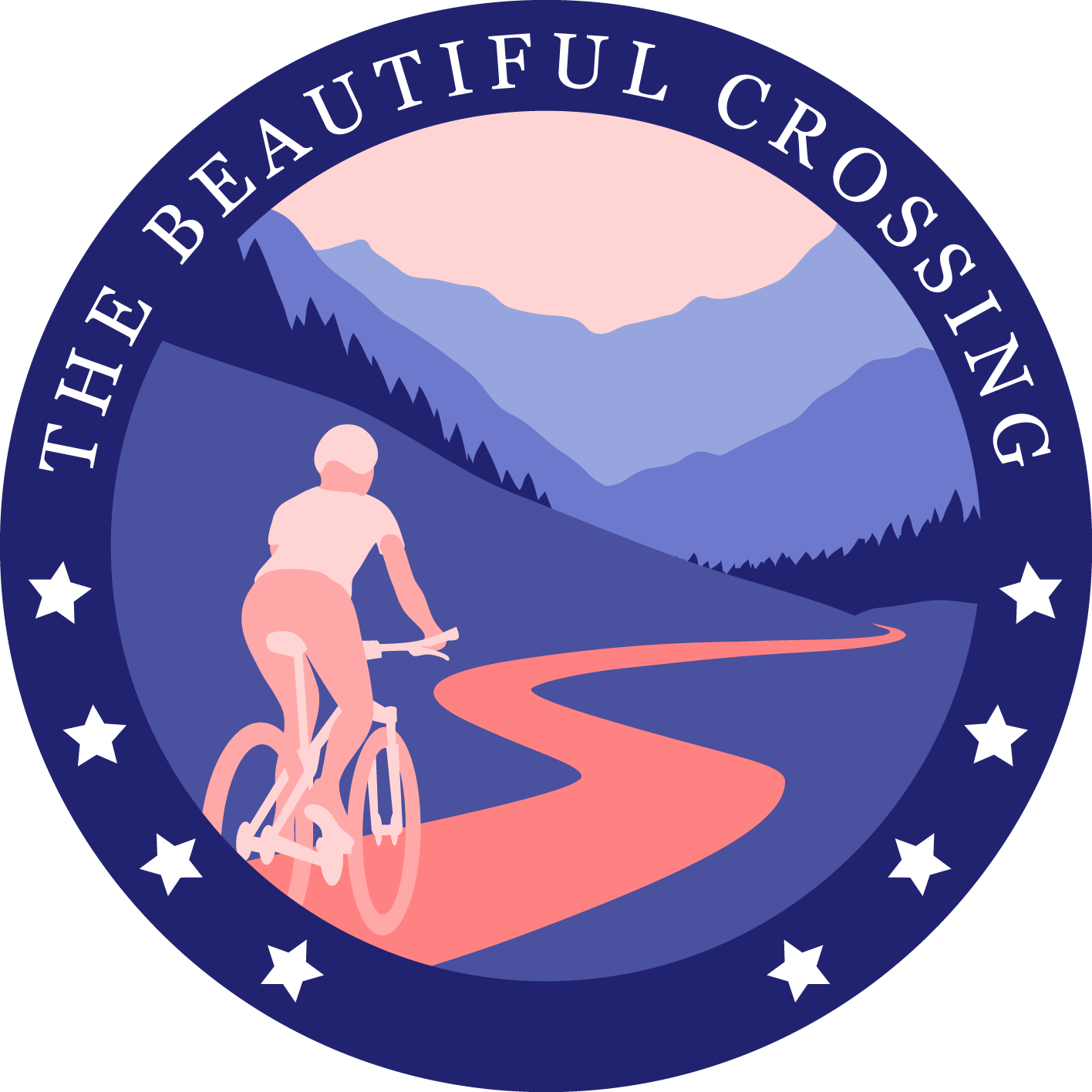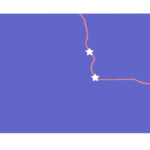
Colorado
Julie
Colorado Springs, CO
“Majority – I think 99% of the people who come here – they need a place where they can call home. They need a peace. They need a dream, and that’s what this country is all about. But like you all know, there’s going to be always – when you welcome people… You can have ten kids, but one will have different heart. And yes, we can say there’s some guys who have come and have a different agenda in the mind, but it doesn’t mean every refugee is a criminal. It doesn’t mean that every refugee is not grateful for what you did. I think what this country has done for many refugees is amazing.”
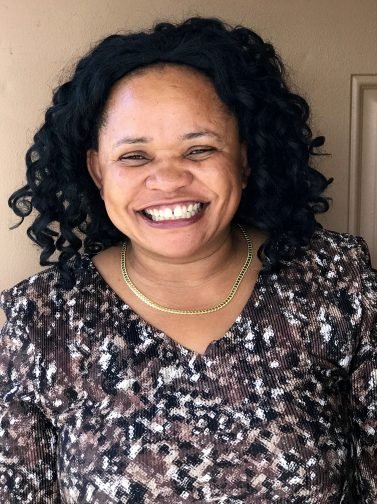
My name is Julie Mwozi-Mapatano. I am originally from Democratic Republic of the Congo, and I live in Colorado Springs, Colorado.
So we just first came here in the United States in 19 – no, in 2000! The 30th of 2000, July. And in the plane it was kind of weird because you have no idea what to expect, because when you are Africa you feel like America is heaven. And you let go of your clothes, you let go of everything that you have because you think you are going in heaven.
It was, it was – we were received by IRC, an agency that works in Atlanta, Georgia. And then after that we handed off Jubilee Partners, which are Mennonite people. And we went in there and that’s where we stayed for two months preparing us for cultural orientation and also preparing us for regular things we can expect in America – with the school, for the kids, how to shop, how to do basic stuff.
In short, I don’t know if I can explain how I end up with Habitat for Humanity Housing. Like I said before, coming in America is a dream for everyone – especially for our family because we have prayed for so long for God to make a way for us to be in America and he have made it. And then we have made our American dream come true in Georgia, and then we moved back to Colorado. Then we lose the house from Georgia when we moved to Colorado, and then my husband passed away leaving me with six kids. So that was my low point of life, because imagine having six kids, you have no income coming in. You have no uncle, you don’t have no aunts – you don’t have nobody and in a new place! Then you are working hard. In my heart I knew, I don’t want us to grow victims. Because it is easy to be – to fall down and look why we don’t have this. It is easy to cry and become victims everyday, but one thing that has been constant it’s the love of God in my life. God has been there with us, with the kids, with myself, and he answered our prayers. So we find one sister who was saying she was moving, and she told us about Habitat for Humanity. We applied. It took a while, but in the end they did accept us. So for us it was like a little light of dawn coming in our house, so we knew we can dream again. We could continue dreaming because we know we had a place called home on our own, so God made a way.
The things I really do like here is the education part. In everywhere you go you will find they care much about the education. From the time the kid can go to kindergarten to the time the kid can finish high school, they really care. And even if the kid can’t really study well, there’s teachers who are lined up to be able to explain to the kid what is happening – which was contrary to where I come from in the Congo. School was not free. School is still not free, and it’s like for people who have a little money that’s where the kids go to school. But here in America, it is a requirement for kids from age 5 or 6 to go to school until they finish high school. And the government or the education or the teacher will make sure they follow up on the kid. I really like that part.
The second thing that I like about this country is the acceptance of anyone from different cultures, form different backgrounds. You can really become whoever you want to become here. I think when people say that the sky’s the limit, and that’s true in America! You can make it work, or you can make it bad. It’s like, if you say the mindful to do something and you work hard and you are respectful and you follow the law of the land, you can become however you want to become – by God’s help, of course.
The third one I like about here is a woman can also become someone! For me as a woman growing up in Africa and being – usually a woman is a property for men. They are looked down and they are not accepted much, but in America a woman also is a person, a human being, and is accepted in the community.
For all my four girls who have finished high schools, they all got full-ride scholarships. Not just any scholarship – paying 55,000 dollars a year! If you have to go to school, 73,000 a year to go to school. It was not something I could have done, but it’s really by God’s grace and also the power of organized country. The power of acceptance. The power of love that this country have. Many people see the only bad part it, but there is so many good parts of this country. I try to focus more on the good part, because I think what do you focus on, that’s what you become.
Majority – I think 99% of the people who come here – they need a place where they can call home. They need a peace. They need a dream, and that’s what this country is all about. But like you all know, there’s going to be always – when you welcome people… You can have ten kids, but one will have different heart. And yes, we can say there’s some guys who have come and have a different agenda in the mind, but it doesn’t mean every refugee is a criminal. It doesn’t mean that every refugee is not grateful for what you did. I think what this country has done for many refugees is amazing. I just feel like they should give the refugee a chance, and don’t look them down that they’re all criminal. Many people, many refugees love this country so very much. They feel like – they thank God that they can get a place that they can call home. And that’s what you provide to many of us. And so please don’t look down that they’re all criminal. No, they are not all criminal. And don’t put the sin of one person to all of them. I think that is what is happening. So I try not to look that and try to look for the good part, because I still see many people who still care about the refugees.
Gloria
Colorado Springs, CO
“I tell you truly, I miss my Colombia. I really miss it. But I am very grateful for the opportunity to live here because unfortunately in Colombia, the only bad thing is the crime and the war that is going on there… There are armed groups who are not in agreement with the military, and so if someone has a son who is part of the military they will bring about his ruin. They killed my father, my brother – it was the guerrilla armed groups… It is the only bad thing about Colombia – the armed groups. They are really the only bad thing.”
Representative photo taken to replace original portrait.
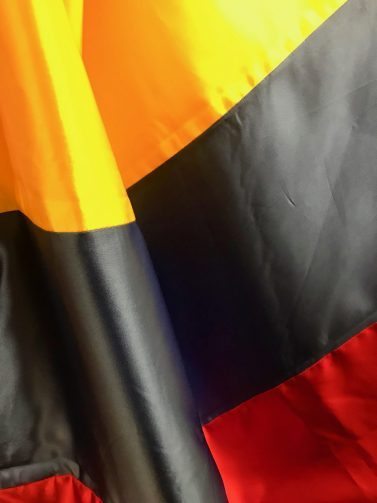
Well, first of all good afternoon – my name is Gloria Vargas and I am from Colombia. I have been here in the United States, in Colorado Springs, for one and a half years. I came here with my two daughters – my daughter Angie who is 16 and my daughter Carol who is 18.
In this moment I am alone – my daughters of course, have their boyfriends who they will spend time with. I prefer to spend my time working. I don’t have status, I don’t have friend, I don’t have anything.
My daughters – thanks to God – are pretty much adapting themselves. They drive and have gotten to know the city a little bit. They can hold their own in English – for one of them, it is very funny… The younger one, she can speak. When she speaks, they understand her – but she doesn’t know how to read nor write. The older one – she knows how to read and write in English, but she is afraid to speak. And she also understands it. She is the one who helps me with returning papers, other tasks, or if I need to fill out an application right away – she is the one who is really in charge because she knows how to read and write very well. She has put in a lot of effort, and after a year and a half she defends herself very well. And for the youngest one – it is something really funny. I know you are going to laugh. The younger one, when she was studying was never really interested in English. Not at all. She was living in a totally different planet thinking that she would stay in Ecuador, because we stayed in Ecuador for two years. We adapted and developed our own habits because we there we spoke the same language. So in that way, this was something good. When the little one arrived here she said, “I don’t want to live here. This is not for me. I don’t want to learn English. I can’t learn English.” She was completely closed to the idea of learning English.
The older one, yes, she entered everything but the little one – no… When she was at school, they would call me and tell me that she wasn’t paying attention in class. She would say, “Why would I want to learn English? I am going to go back to Ecuador!” But God is some nice that she met a boyfriend who is Chicano. That’s what they say here, because he was born here in the United States but he is American with Mexican? Something like that. Some kind of race like that. And the boy only knows English, and so since she has fallen in love with this boy, she has put a lot of effort into learning English! Now, she is putting in the effort, because in order to have this boyfriend she needs to know English. And so now to speak with her boyfriend, she uses a translator. So thanks be to God my little one has started to put in the effort to learn and know English so that she is able to understand what her boyfriend tells her! It’s very funny, but it is the truth.
Sometimes I really miss my country. Because of this, because in one weekend I would go spend time with my Mom, with my family. We would often have potlucks – we would go down to the river, and everyone would bring a pot full of food. We would cook and share food together amongst friends, with our neighbors. This is something I really miss, because here we don’t have this. The customs here are strange customs….
Because wherever I want to go, there are people smoking. They smoke and smoke and smoke – dear God! In Colombia, you don’t see this. In Colombia, you rarely see a person smoking. Very rarely. In Colombia, they say that since that is where the coke comes from, they think that all the people are using coke. But they are really wrong. In Colombia, they produce coke – but they don’t use it or smoke it! And here the people who are Americans, who are very smart – because in Colombia they say, “Wow, Mr. American! They will let me go to the United States – that’s where they have the most advanced technology.” Yes, there are many technologically advanced things here – they do take charge and create many rare things. But truly, the people here – and forgive me for criticizing and saying this – but the people here are killing themselves. And in this sense, it is truly brutal. They are using marijuana, they are using coke – smoking desperately and I don’t know why. Alcoholics. I don’t need to say anything more, but in Colombia you really don’t see this.
I tell you truly, I miss my Colombia. I really miss it. But I am very grateful for the opportunity to live here because unfortunately in Colombia, the only bad thing is the crime and the war that is going on there. And what happened to me happened to me – because this kind of thing does not happen to the majority of people – this happened to me because I have family who are part of the army. And there are armed groups who are not in agreement with the military, and so if someone has a son who is part of the military they will bring about his ruin. They killed my father, my brother – it was the guerrilla armed groups. And so because I had one son in the army – I used to have two sons, and in this moment I only have one – they were going to kidnap me and they kidnapped my daughter. The guerrillas kidnapped my daughter. It is the only bad thing about Colombia – the armed groups. They are really the only bad thing.
I feel happy and proud because of my daughters – both of them. Because here, I feel proud of my daughters because if we had stayed in Colombia, they would have killed them or killed me. But thanks to God, my daughters are dong well here. They are alive, they are healthy, they are not good girls – not involved in any vices. They are very dedicated to their studies. They have goals. And in terms of their life stories, here they have many more opportunities to make progress, to get a scholarship so they can study, to get help from the government. Yes, this of course. This is not really the place that I want to be happy, but there are also so many opportunities for young people here. And I am happy because of this. This is my happiness. Because I know that my daughters are going to finish their careers, they will become professionals and have many opportunities here.
MANDARINA
AURORA, CO
“My plan is to one day have a talk show – a refugee talk show! I want the whole world to hear others people’s voice through the video. One thing for sure for me that I learned that in America that confuses me is that we never get to explain things to each other. And so that talk show is – I want it to be a place where people discuss, people talk about what’s going on. How are we going to we fix this? How are we going to do this? And of course it is going to be fun also!”
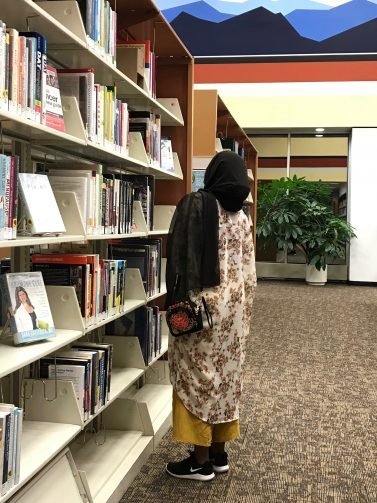
I am originally from Ethiopia, but I was born and raised in Kakuma refugee camp in Kenya. And I have been here for almost 5 years now. I came here in 2013. When we came to United States, we landed in Chicago and then from there we took it off to Denver. We got a house – it was three bedroom and it was really small bedrooms. And so we only had half of us sleeping in the rooms, and then the other half we were all sleeping in the living room. We weren’t distracted by that. We thought it was normal, because of course in the camp we would just share a mat with five or four people or six people. We would just share, just put their head on. So it wasn’t a really big thing for us until we had visitors coming in and saying, “Oh this is a small house for your guys!” And we were surprised and my Dad was, “No, no this is enough for us.”
Honestly, I never dreamed – this is not my dream to come to the United States. This is not my dream, it was my family dream – it was my mom and my dad. Their dream was not to come to America. Their dream was to get us to a safe place. A place where we can, you know, warmly sleep. They don’t have to worry or they know that we will come back home, or anything not going to happen to us. We went through a really big process to get here, but in every process my family would laugh at me because I was either sleeping… And I just wanted to go back to school because I just thought that it was a waste of time – and I hate it! But coming to the United States, the first day, I was not really into my mind. It was just a moment of this is the America! Because when I was in that room sitting in that UNHCR room, I was shown a picture of the buildings, and the schools, and the kids – all that fancy stuff. And so in my mind that is how I seen America. That is the America that I thought I was going to – and it was! It was the same – the same place, and the same people, and all that. But when I got here, something was just missing. Up till today, I know that I live in America but my mind is with my friends who are back home. I still think that I am in between both countries.
When I started high school, on my first day of classes, I was assigned to sit with some student and the student was American. She told me – she asked me my name, but I couldn’t answer her. She asked if I was from different country, and I told her, “Yes.” And she told me to go back to your country. Since that day, I have felt like I was taking something from the American people. But at the same time I don’t have a choice but to stay and to live the life, so… Because American people have helped me a lot, I feel that I am a burden to them. I came here and every time I hear people saying go back to my country, it’s where am I going? Because I don’t have a country! I was not born in Ethiopia. I am Ethiopian, but I was not born in Ethiopia. And I was born in Kenya, but I am not Kenyan. And so I am in America, but I am not really American yet. So it is just like everybody doesn’t want me. So sometimes that’s why sometimes I wonder why am I in this world? Like what is the point of me being here? I feel lost. So it doesn’t really get to me, because I am a survivor. But at the same time, you know at the end of the day, everybody has a feeling. So it doesn’t worry me that much, but it worries me of my little sisters. Are they really going through the same thing I’m going? I always ask the same question. Sometimes I have to sit down with them and tell them don’t listen to what they are saying.
My plan is to one day have a talk show – a refugee talk show! I want the whole world to hear others people’s voice through the video. One thing for sure for me that I learned that in America that confuses me is that we never get to explain things to each other. And so that talk show is – I want it to be a place where people discuss, people talk about what’s going on. How are we going to we fix this? How are we going to do this? And of course it is going to be fun also! So we are going to have fun and stuff, but that is where I see myself in five years. If it’s not that, I know I am not going to sit around. That’s all I know. I will do something. I will volunteer – I don’t know, it doesn’t matter where. But I am just ready to put what I can because I need to pay it and put it forward.
Maria
Colorado Springs, CO
“I love the greenery of Colorado so much, and I went to park as well. I have gone there several times… My mind has become very calm here because when I was in Afghanistan, when my children would go outside or go to school and until they would come back home… Because it’s not safe there, there are explosions happening there, even now, everyday when you look on the Internet, you can see that everyday there are attacks. Children are dying, the elderly are dying – but here, honestly, my mind has become very calm.”
Representative photo taken to replace original portrait – Photo Credit: @sveta_547
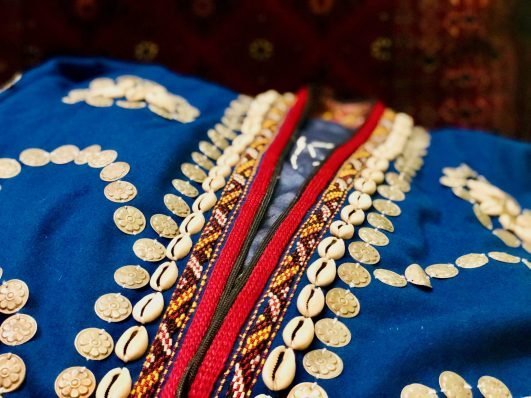
I am from Afghanistan, from the capital of Afghanistan – Kabul. And it’s been approximately 9 months since I came here.
The first day that I came here, when I got off the plane, the whole environment was foreign for me, was unfamiliar. Several people from the Lutheran came to meet me at the airport. And also, my brother lives here as well, so he also came with his family to pick me up. Honestly, that day is an unforgettable day. Definitely, I was sad too because I had to leave my country, and have to be separated from my mother, father, siblings, relatives. And I came here. The only thing that I was happy about was the fact that my brother lived here and that there was peace.
It was even better (than I expected), because we thought that if we came here, the environment would be unfamiliar, the people unfamiliar, and how they would behave with us. But I saw people’s behavior and I liked it very much. They are very kind, they behave in a way that makes one think that you had lived with them for years – this is for people I meet outside in public. So far, we don’t come and go to each other’s home, and I haven’t seen anyone doing that here so I don’t know about that.
I love the greenery of Colorado so much, and I went to park as well. I have gone there several times… My mind has become very calm here because when I was in Afghanistan, when my children would go outside or go to school and until they would come back home… Because it’s not safe there, there are explosions happening there, even now, everyday when you look on the Internet, you can see that everyday there are attacks. Children are dying, the elderly are dying – but here, honestly, my mind has become very calm.
I go to English courses. I study. There, my teachers are very kind. I am friends with them, we see each other a lot. Most of the time I am at home because I have to stay at home with my children, and I don’t have a job. That’s why I can’t make a lot of relationships and I don’t go and see a lot or people.
Yes, my husband works and all my children go to school. And their father tells them to focus on their studies, because my husband was a doctor himself in Afghanistan, but here he has a very simple job. This really hurts us a lot… And he wanted to continue his education, but a lot of money was needed for him to do that and he didn’t have it. So our only hope is that it will be possible for him to continue his education at some point.
(I am proud of) the fact that my children study at American school in America – two times the school awarded (my daughter) a certificate, and her father and I were so proud that we even shared it on Facebook – both her father and I- so that everyone in Afghanistan would see this.
My first hope is that my children would graduate from university, and that they would study in the fields they are interested in and graduate from those fields. I also want them to be the best people they can be so they can serve the society. My second wish is that I want my father and mother to come here and be with me – then I think all my dreams will have come true.
SOLANGE
DENVER, CO
“Something I feel like I am proud of is to learn English so quickly, and finishing my high school and get my high school diploma. I graduated. I didn’t imagine that I would graduate in the USA, so that’s the things I am very proud of. And I am very proud of driving a car. I didn’t imagine to I can drive a car, and now I can drive. I get a job – I wasn’t imagine I could get a job in USA. I thought it was very hard, but now I can work like any other kids. Like I have the same opportunities as any others.”
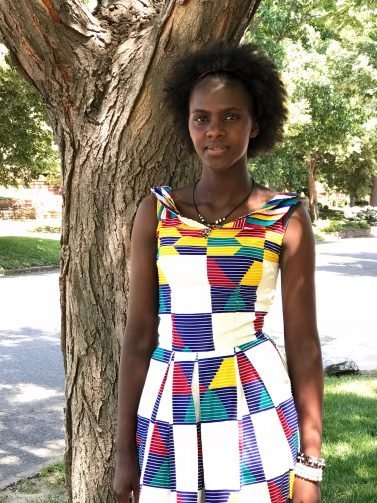
I’m originally from Congo, Kinshasa, and I lived in Kenya for four years. I came here to USA in 2017. I have been here for one year. When we were still in Africa – so we used to take America like, yeah it is a rich yes but they used to tell us that there is more money… I don’t know, that there is money yes, but that there is money everywhere! That you can find money in the trees or wherever. Just a thousand thousand dollars somewhere. So when I came here, I thought there is money in the house. Everywhere is money, and I found that you have to work to get money. You have to work hard to get money. You don’t get like free moneys every time.
They used to say like police is everywhere. Yeah, the police is everywhere. Like when the parents came their kids, there is camera everywhere. They used to tell us there is camera everywhere. In the house, wherever you go… There is a camera in your house, so when you do something bad the police is there. So I was very careful. My first time to be in the house here, I was watching if there was not camera so because they say there is camera everywhere. There is watching for you. When you do something bad, the police is there.
Something I like in USA is like I get more opportunities for school. At school we get like transportation to get at school. We get lunch at school, and we have many access at school. We have internet at school. Because where I was, I had to walk for one hour to get at school. Sometimes you get at school when you are so tired, you feel sleepy in class. But here, I get an opportunity for getting transportation. Even if I am not using a school bus, maybe I am driving my Dad’s car – because my Dad didn’t have a car before. So I can drive, cause I know how to drive. That’s the big (thing), they have opportunities. And I graduated here, and I am planning to go to college. Because in Kenya where I was it was not very easy to join college there, but here I have opportunity for school. I can achieve my goals because of more opportunities. And here they have more opportunities for jobs. Like my parents can work! I can work too. Before they didn’t – they didn’t work, but here they get a job. Me too, I get a job. I work. So there is more opportunities.
Something I feel like I am proud of is to learn English so quickly, and finishing my high school and get my high school diploma. I graduated. I didn’t imagine that I would graduate in the USA, so that’s the things I am very proud of. And I am very proud of driving a car. I didn’t imagine to I can drive a car, and now I can drive. I get a job – I wasn’t imagine I could get a job in USA. I thought it was very hard, but now I can work like any other kids. Like I have the same opportunities as any others. I worked with medicine for a couple years. It wasn’t my job, but because I had my brother with medical problems. So every day – cause he took many medicines, even now he takes many medicines – so I was in charge of helping him to get medicine every day. So because of that, I feel myself to do a pharmacist work. Because I feel to help people to get medicine, because I saw that it is very helpful.
NGA
Denver, CO
“There is that word assimilate that doesn’t really sit well with me, because when people ask, “What it is like – or what does it take to be an American?” And the answer usually is – they are expecting me to say, “Once I assimilate to the United States…” And I don’t agree with that! Assimilate to me means that I have given up everything of who I am: my identity… I’d rather use the term “be multicultural,” because I can be American but I can also be Vietnamese at the same time. Because that’s who I am. I am not one of the other – I am both. I am very proud of the fact that I am still fluent in Vietnamese. I am very proud of the fact that I celebrate the traditions and culture of my Vietnamese heritage, but at the same time I also celebrate the things that are American too.”
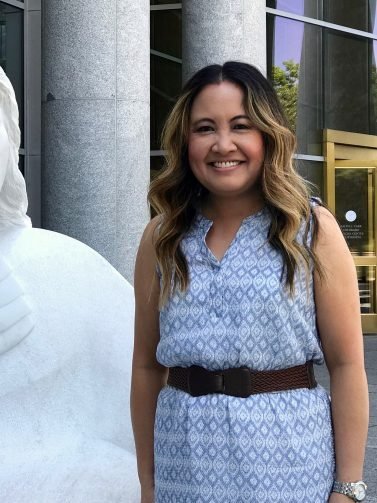
I am originally from Sài Gòn, Việt Nam and I have been here since I was a toddler. And so most of my life has been here in the United States.
My earliest memory is upon our arrival in a refugee camp. It was in Arkansas, and it was complete disarray and chaos. There were families that were separated – as they are now with different groups that we are more familiar with in current times. It was a horrible situation to be in. To have lost everything and knowing that your family – particularly my parents – were trying to keep things together in the best fashion that they knew how despite the conditions that we were and despite knowing that they could never go back to our home again. So from the stories that I’ve heard, I am sure that radiated on us as children at the time as far as the level of stress that was going on, and the sense of loss – were probably the first memories of coming to the United States.
I’ve always – since as far as I can remember – social justice issues have always been very important to me. Because refugees have always been seen as an other, even today. And I feel like it is not just important for me to represent as a refugee but as a human being. For people to realize that advocacy and storytelling and policy changes are still very important to this day. And I think every step that we take forward as a community, as an individual, it is a step forward for all of us. It is not just on a micro level, it’s on a macro level. And so the decisions that I have made in my career – whether it be as a City Commissioner for the Denver Mayor’s Asian American Pacific Islander Commission or my role with the Colorado Department of Law – they are intentional, because I know that even if it appears as a small step to someone else, I feel like we are progressing forward. And anything that I do – or can do – to help that cause, I’m going to do it. I am going to try to be as visible as possible and discuss the concerns and issues of our community.
At one time, the United States welcomed everyone, and there were people who were introduced to America in a very non-harming, in a very kind and a very compassionate way. And I think we reap the benefits, we all reap the benefits of that because some of the most extraordinary people I have met and some of the most meaningful relationships I have had are with refugees, with immigrants. And I know that they enrich my life. I know that they enrich the lives of many people they have touched. And I know that there are some many more lives that they should touch, but because of the fear of differences they are losing out and they are missing out on so many great attributes that these individuals bring to the table and just to this country. I know that the contributions are things we can see – and that there are things that we cannot see. They might not be wealthy monetarily, but they are so wealthy in so many other ways. And I am so proud to among that group of people.
There is that word assimilate that doesn’t really sit well with me, because when people ask, “What it is like – or what does it take to be an American?” And the answer usually is – they are expecting me to say, “Once I assimilate to the United States…” And I don’t agree with that! Assimilate to me means that I have given up everything of who I am: my identity. What’s important to me: my culture, my language. And I don’t think that is necessarily a good thing. I’d rather use the term “be multicultural,” because I can be American but I can also be Vietnamese at the same time. Because that’s who I am. I am not one of the other – I am both. I am very proud of the fact that I am still fluent in Vietnamese. I am very proud of the fact that I celebrate the traditions and culture of my Vietnamese heritage, but at the same time I also celebrate the things that are American too. So if you simplify the person by saying that if you lose everything of who you, that makes you more American – I think that makes you less American! Because Americans are a lot more layered and a lot more complex than just having one identity. So it sells everybody short, and it robs that person of their authentic self is.
Last year, on June 20th – it’s a day I have always celebrated, it is World Refugee Day – but it was the first time in Colorado, since the state was enacted and founded in 1876, that we made it an official day. The Governor, Governor John Hickenlooper, was there along with a host of community members. And there were traditional dancers – ethnic dancers – there was a drum line by students – a high school that did a phenomenal job. And the Governor proclaimed it as officially Colorado World Refugee Day. And again, I was very fortunate, along with other refugees, to be one of the speakers at this event. And told about the wonderful people that assisted me along the way. Very specifically our, of course, President Ford who allowed all refugees in with his executive order. My first grade teacher, who made a tremendous impact on me. Our sponsor families and I talked about the community that was welcoming. That really made an impact on us. So I see that as a step forward…
The Vietnam War caused the refugee influx for quite a long time. It wasn’t just in the 70’s, it caused the influx during the 80’s and 90’s. It was a very long war, and there – this was completely new to the United States! We were the big huge migration and influx of refugees. And so we were very fortunate that there were NGOs there were faith-based organizations – particularly churches – and the Lutheran denomination was extremely welcoming.
Now I see different communities – such as the organizations that are here in Denver and in Colorado that work, that have direct impact with immigrant and refugee communities – and their funds are being significantly cut. Especially funds that are going to – that are supposed to be impacting refugee communities in a positive way. Staffing has diminished. And that’s not right! That’s not what should be happening right now.
At the end of the day, these are people who have lost everything. We have lost everything. We never left because we wanted to leave. We were forced to leave. We never chose to leave our homeland. We never chose to leave everything that was familiar to us. We never chose to leave our home. The situations forced us and thousands and millions of refugees that are stranded right now because of the funding situation and just the lack of understanding why we leave. And so I think it has really taken a turn, not necessarily for the better, when it comes to funding for refugee programs. But I am really hopeful because of the things that I’m involved with that there are people who truly and genuinely care about the cause, and care about individuals, and know that about the humanity of who we are.
RAZAN
Colorado SPRINGS, CO
“There was a dream that was always with me that to join law enforcement and to become a police officer. So I have been working on this lately for the past six months, and I have like completed the police academy test… And that I feel would be really helpful to me personally, and to anyone or women from the Middle East to show that they do have power and that they can reach their goal and their dreams. I would really be helpful to this country, to this community.”
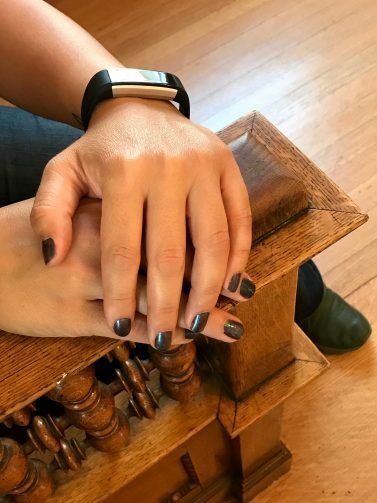
I am originally from Iraq, and I have been in the United States for eight years.
Me and my family arrived in 2010, it was May. And it was nighttime, so we got out of the airplane, we had had like friends – members that we know from back home, in Iraq. They were at the airport along with the agency, like a case manager from the agency, Lutheran Family Services. It was nighttime, it was raining even though it was like May. They drove us to our temporary housing, along with the other family that was there, and they provided hot meal for us that night.
I had been like watching movies about it, and to be honest I was like really scared to come to the United States. Part of it is like learning new language and meeting new people, and I knew that it would be the homesick feeling that will be with me for a long time. So I wasn’t very excited to be here, to be honest. But because of everything that is going on with Iraq and the war… If I had the option, if it was safer to be there, I would never think of leaving my country and being in a different country.
There was a dream that was always with me that to join law enforcement and to become a police officer. So I have been working on this lately for the past six months, and I have like completed the police academy test. But for some reason, I was going through some transition so that I couldn’t pass the test, but I am not going to give up. I will keep trying, so I really want to join the law enforcement. And that I feel would be really helpful to me personally, and to anyone or women from the Middle East to show that they do have power and that they can reach their goal and their dreams. I would really be helpful to this country, to this community. We know that we don’t have a lot of female police officers, and that’s first. Second, having a different language would also help.
The reason for people leaving their own country is mostly for safety and the war has been going around the world. So basically, I don’t think any of us would like to leave their own country where they grow up and raised in that country and would like to move to somewhere else where they have to start everything from zero. Refugees are not dangerous to be in this country, and we have a lot of successful stories. They want to work. They want only to live in peace. That’s all.
MAIS
DENVER, CO
“I am the first generation – I was not even born here! So you carry all of these roots with you, and it’s like you are always living in this in between stage of like having your roots with you but also having some values of the place that you are currently living in. So I mean, I absolutely love the friendliness of the people. A lot of people have genuine curiosity and have genuine interest in people, which is not necessarily something that you find everywhere. You know, I think that the American dream – I can see it. I can see where it came from. I don’t know how much I believe in it though – that you can just like pull yourself up by your bootstraps and everything will just kind of work out if you work hard.”
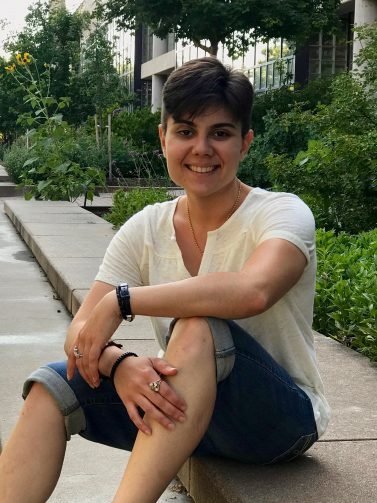
So I was born and raised in Iraq, Baghdad, and I moved to the United States about 5 years ago now. This is my fifth year. In February is when it would be officially 5 years, but I have come to visit before about 2 to 3 times.
I cannot pinpoint like just one point where Denver became home, until like recently when I went on a trip for school. And it was like a week trip, and it was like really intense training. The weather was awful. It was in Kentucky, so it was like really humid really hot all the time. I was doing constant work, and I found myself like thinking of Denver – like the way you think of home, like going back home. And when I got here, got back here – after it was merely a week! It wasn’t that long, right! Its like Mais, get over yourself! But it was.. Like when I landed, I was like, “Oh! I am home.” And that’s when I knew – Denver is home now. I think what I most like about it is that it is not overwhelming – like New York or Chicago, right? Where you are in a sea of people and you feel like you could just get lost! Right? It’s just so overwhelmingly crowded and career driven and like so oriented towards individualism, right? And it’s not at the same time that small city that’s going to get melted, and you don’t recognize, right? So it has that in between-ness that I like.
Recently I have been continuing my graduate studies in Sociology with a focus in Women and Gender Studies. I’ve always loved studying, and I’ve always said that if I can get paid studying and reading then yeah, this is what I want to do! And recently I have become more and more focused on academia, and I have come to realize that oh, maybe being a professor would give me that leeway, right? Yeah, you do research all the time! You are with young minds all the time, so you never get old, right? You always exchange ideas with people, and the younger generation always keeps you fresh. So in five years, I am hoping that I would be in a PhD program. I mean my ultimate kind of ideal goal would be I would go out of Denver. Go to a really good PhD program – hopefully in California! Exactly – fingers crossed. And then I would come back here actually. I want to give back to this University, because here I have met so many wonderful, giving, generous people. And I can just like imagine this scenario playing in my head where the advisors and the professors that are like teaching me now, that I would come back in a few years being their colleague – and I can give back to the same student population that served me, you know, and helped build who I am today.
I am the first generation – I was not even born here! So you carry all of these roots with you, and it’s like you are always living in this in between stage of like having your roots with you but also having some values of the place that you are currently living in. So I mean, I absolutely love the friendliness of the people. A lot of people have genuine curiosity and have genuine interest in people, which is not necessarily something that you find everywhere. You know, I think that the American dream – I can see it. I can see where it came from. I don’t know how much I believe in it though – that you can just like pull yourself up by your bootstraps and everything will just kind of work out if you work hard. Initially I was like, yeah you really make it here if you, like you know, put one foot in front of the other and just work towards it. But the reality of the situation – it doesn’t work that way.
There are a lot of complications that come with being in the United States – things that have to do with race, things that have to do with gender, things that have to do with ethnicity – that does come in your way. And I think you don’t – that might have been something that I have come to realize more recently as I started, you know, being in the community, working and studying. That is something that I didn’t anticipate to see. You know there is this notion in your mind when you are outside of a country that it is going to be better – like way better there! Or it is going to be closer to an egalitarian society. And then when you realize sometimes that your name is a hindrance because it doesn’t sound white and it sounds ethnically ambiguous, and you know that deep down it does affect how employers might hesitate before picking up the phone and calling you for an interview. So that is definitely something that was kind of – a disappointment would be a strong word, I would say – but it was kind of like it gives you a shock. Like oh, wait a second, it’s not as it looks like.
I would say that we are sometimes so stuck in a unilateral view and we see things from one perspective, right? And it is so easy to get stuck up on it. I mean, it is so hard to be grateful for hardships, but it is something that I have come to appreciate because without my hardships I wouldn’t be able to step out of my shoes and try and see other people’s perspectives. Just imagine, like overnight you having to leave your country. With no preparation at all. No one, no one prepared you for the moment that you have to pack up just a couple change of clothes and leave. And you don’t know where to go. And you have – and we are not just talking about oh, I am going to change states! No we are talking about leave the entire – everything that is familiar to you! You leaving your parents, your friends, leaving your resources, right? Like your money, your car, like little things that we don’t think about on the daily! Like little things that we take for granted. And you are just told that you simply cannot exist here anymore. What would that make you feel? Where would you go? I personally went to Syria afterwards, and in that country everything is an unknown. There is no security in jobs, no security even in schools where your kids are supposed to be. There is no security in where you are going to stay, where you are going to get your food every day. When there are such like fundamental needs that are not being met, how is that going to affect you as a person? You have to re-adjust and almost like reprogram yourself all over again to the traditions, to the needs of this new community, to how you are going to fit in and help your kids fit in. This is what immigrants go through on the daily. And I would consider myself a lucky person! I didn’t have to wait until the last moment when a missile would hit my house, but there are people who literally had to leave because their house was burnt to the ground. Everything to their name they lost. I would just encourage you to take a moment to just remember that those are like people of flesh and blood, like you and me, with hopes and dreams, and kids they love, and partners they adore, and they just want to live.
ALI
cOLORADO sPRINGS, co
“I never got the chance to go to high school, go to college. My father was not working, my brother he was working – but he was just helping himself. So I was living in Helmand, if I go to college I have to go to Kabul because we don’t have that much college in Helmand… I have to help my family. I have to help all my brothers. So that’s only the difference in here that I like it about here. So anytime you can go to school, you can go to college, you can work hard. There are a lot of work opportunities.“
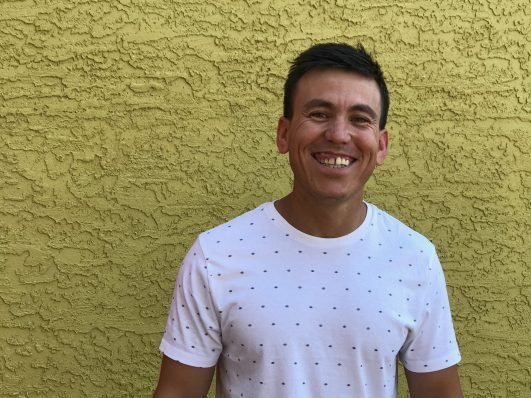
I am originally from Afghanistan, and I am here in the United States about 15 months. When I was working with the U.S. Military, I heard about the all goodness of U.S. – all good things. And when I got here for the first week, everything was still normal for me. And then after a week, I was kind of hearing about all the – about working, the insurance, paying bills. All these things, and I was like, “Ohhhh these are hard for me. I have never done this before.” So yeah, it was hard for me, because I missed – I missed two times like the bills, paying my bills, like the rent. And they still charging me for the late fee. And I was so pissed and so angry. I was like, “Why? What’s wrong with it? Why do they think we are stealing their money? Why they think we are escaping away? We are still living here, we are going to pay their money! Why they charging late fee? Why are they charging for this? So these kind of things were so strange for me in the first time, so I got used to it now.
I never got the chance to go to high school, go to college. My father was not working, my brother he was working – but he was just helping himself. So I was living in Helmand, if I go to college I have to go to Kabul because we don’t have that much college in Helmand. And in that time, we have only morning time school. So that wasn’t work for me because I have to work. I have to help my family. I have to help all my brothers. So that’s only the difference in here that I like it about here. So anytime you can go to school, you can go to college, you can work hard, you can… And there are a lot of work opportunities. That you can work everywhere you want, but in Afghanistan it is hard to find a job. It’s hard. In here, you have all these opportunities in work, to go to work and go to school. So I am planning to go to computer tech college after school. Yeah, and so that’s what I’m saying because that I like it about here – at the same time I can go to school and I work. From here I can support my family back to Afghanistan and my life here.
Ah, what I miss from Afghanistan? It’s food. My family. I cannot get that food I was eating in Afghanistan. I mean I can still getting the same food, but it still doesn’t taste the same. Like they have this Afghani restaurant, not here but they have it in Denver. They’re actually, they’re pretty good, but it doesn’t taste the same when you eat it in Afghanistan. Especially when you eat those kabobs. They have a lamb kabob and they have a kabli – it’s a rice. They are tasty, they are pretty good. So if you go to Afghanistan, these are the famous dishes in Afghanistan – kabob, kabli, and mantu. These are the famous dishes and everyone knows when you are talking. They are delicious, but you cannot get them here. You can get the Kabli in here in an Afghan restaurant, but not mantu.
So I am planning to bring my family over here. So that’s the first thing, the first step: I have to have a citizenship. I cannot bring them without citizenship, and if I do not have it… So yeah, I am applying for the citizenship to get it. Right now, if I am imagining – I’m thinking about my, the youngest brother. How they are struggling there, how they are going to school. I mean they do not have those opportunities that the kids are having here. It’s a good opportunity to work here and get the education. I mean that’s the only way it works, if you start from here and get the education, get everything and then you can start helping – make Afghanistan better.
ABDIRAHMAN
AURORA, CO
“Yeah, when I remember, you know, some my friends they still where I am from, they don’t get this opportunity. The big one is the job. You see so many people they are strong people, smart people but they don’t have, you know, the choice for how you can start the job – how can you find the job, and how can you get a good education. So I know a lot of people they don’t (get) the good future. But life is life, yeah.”
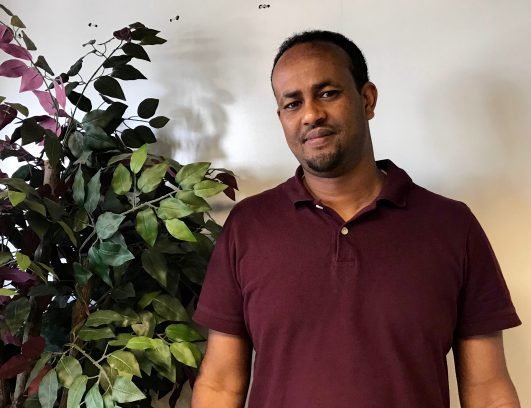
I came from Somalia, like East Africa. I came here like 2012. You know I got lucky for my wife – her name is Ainsala – she came here before me. And then she back to the Africa. She come to me and then we got a baby. And then the baby, she born here and then I came here for my wife and my baby. So actually she help me. And then I got a lot of hard things. I didn’t get that, so because my wife she told me everything, ways – easy ways, easy ways. She has care at that time. So when I came here I said, “Okay, take the baby.” And then we got another baby. And then I say, “Okay stay home.” So I take care for the work. And then I am working. She take care of the baby sometimes she did like, you know, the part time. So we are growing – we are five members for my family now! We got a brand new car. I got like – maybe I work five different places for work. So which one is easy, which one is easy? Which one is good income? So I am doing like three years for limousine driver now, so I make like good good money. So still I want it growing.
Right now my plan, my business plan is like, you know, the mini market – like groceries and stuff. I have two friends, they have worked that one. So you can get everything in the United States, and then I want to start in that one. I checked, I worked with them for one month and it looks good to me. So I want to got that easy way. I don’t want to bring in something China, or Turkish, or Libya, or something like that! I work with ah… So my friend, every day they get the 200 people, 300 people to buy something. They say, “Oh, this stuff receipt!” Daily receipt is like 300. Small, small business. 300 people they buy something. Some people they buy like 75 cents. Some like that. Some people they buy, you know, like the 5 dollars, 10 dollar, 20 dollar – if I am offered the 100 dollar sometimes. So there are a lot of people here, so if you open the business a good plan, its growing easily.
And this city is very, very safe. I am not worried about anything. I working for three years all night from 4 to 4. So it is the safe. If you sleep, like you know, in the street – you wake up safe. I have that. If you bother your neighborhood, you bother yourself. So everything is good, your – you are safe. Everything with the government, it is responsible. They help you. So I see a lot of people, you know, they are doing some crazy… So that’s not good for America. But if you do like the clean way, you will like America – the life is very, very good! Everything – you can get healthy. You can get a good job. You can get a good education. Yeah, when I remember, you know, some my friends they still where I am from, they don’t get this opportunity. The big one is the job. You see so many people they are strong people, smart people but they don’t have, you know, the choice for how you can start the job – how can you find the job, and how can you get a good education. So I know a lot of people they don’t (get) the good future. But life is life, yeah.
